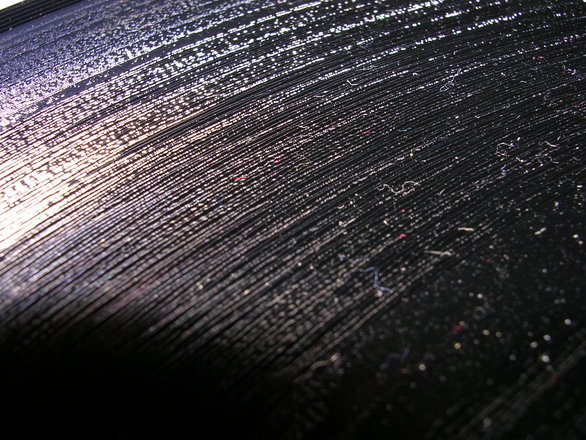Mastering for vinyl is a different process both aurally and logistically in regards to putting together a finished product. Music Guy Mastering does offer vinyl mastering, or “pre-mastering” as it’s often referred to in this case, but it’s important that the client understand the fundamental differences between putting together a master for digital or even CD release, and putting together a pre-master which is sent to be cut and pressed by someone else.
Sound
When mastering for vinyl, the mastering engineer will generally (or better said, ideally) process the audio of the final mix which the artist turns into him or her slightly differently than they would for a digital or CD release. This is because vinyl is a decidedly different medium for audio than digital or a compact disc. Despite the renaissance vinyl is enjoying and the fact that many people genuinely prefer the sound of vinyl over a compact disc, the medium of vinyl carries more limitations. One major limitation is that vinyl doesn’t offer as much in the way of dynamic range which a compact disc does. Too much dynamic range (the difference between the softest and loudest levels) will create playback issues on the record. You also need to be wary of how much low end is in the final master as too much/any bass on the sides (or sibilance or out of phase issues, for that matter) will cause the needle to leap out of its groove, making that bit of the record/song unplayable.
Typically most cutting engineers will get the pre-master which has already been worked on by the mastering engineer and will decide before they make their test cut of the vinyl if there will be any issues with the audio and they will address and fix them accordingly on their end, but the point to keep in mind ultimately is that it’s a different experience altogether mastering for vinyl just in terms of sound quality alone.
Technical
On the technical side of creating a digital pre-master which is to be sent off to be cut and subsequently pressed, there are other factors to consider and more work to be done by the mastering engineer. If the music is being mastered for a digital release, just making the music sound good is basically the extent of the mastering engineer’s job.
When you’re mastering for vinyl, the engineer needs to work with the artist to determine how each song segues into the next, whether that’s in the form of a gap or a fadeout, and how much time exists in between, if any.
Another step which the vinyl cutter has to address (with the artist/producer) is how much music should fit on each side of the record. Different length albums will dictate which size record they will translate to. Sometimes the tracklist from the digital or CD album needs to change to accommodate other limitations of vinyl such as the diminished effect of dynamics as the record gets closer to the inside/end of its grooves. Louder tracks with more dynamic range are often prioritized to the beginning of each side because the deterioration of dynamics as the needle gets farther inward on the record which is typically reserved for the quieter tracks.
That’s the basic overview of mastering for vinyl. While it’s much more involved and does offer you a lot more to think about if you decide to go that route, vinyl is experiencing its renaissance for a reason. Many of the more passionate music fans also happen to be vinyl fans because it puts more of the value back into music. Between collecting and listening to vinyl, it’s an experience which makes music much more a passion project and cherished hobby than something to put on in the background, only to be half aware of.
Your fans will appreciate owning a piece of your collectible history in your music in vinyl, and Music Guy Mastering is happy to make sure that your music sounds as good as possible in that format when they listen to it.

Comments are closed.